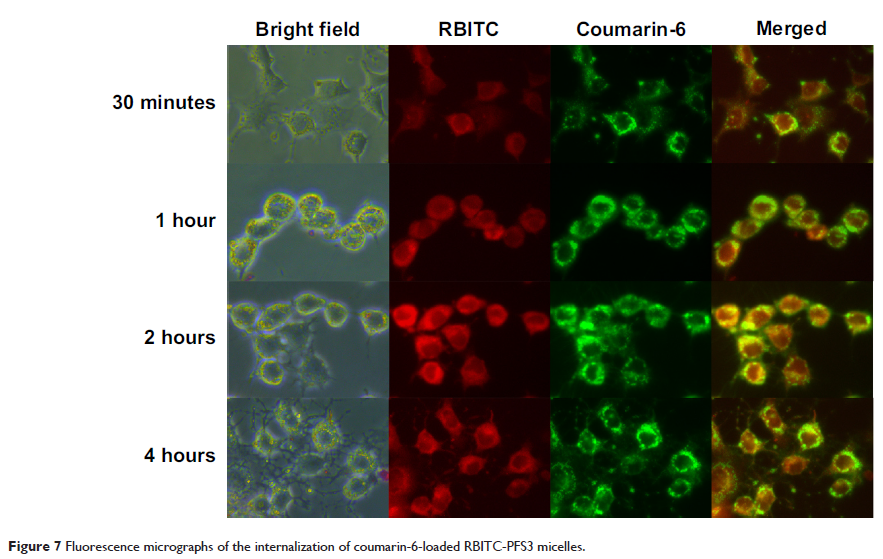108384
论文已发表
注册即可获取德孚的最新动态
IF 收录期刊
- 3.4 Breast Cancer (Dove Med Press)
- 3.2 Clin Epidemiol
- 2.6 Cancer Manag Res
- 2.9 Infect Drug Resist
- 3.7 Clin Interv Aging
- 5.1 Drug Des Dev Ther
- 3.1 Int J Chronic Obstr
- 6.6 Int J Nanomed
- 2.6 Int J Women's Health
- 2.9 Neuropsych Dis Treat
- 2.8 OncoTargets Ther
- 2.0 Patient Prefer Adher
- 2.2 Ther Clin Risk Manag
- 2.5 J Pain Res
- 3.0 Diabet Metab Synd Ob
- 3.2 Psychol Res Behav Ma
- 3.4 Nat Sci Sleep
- 1.8 Pharmgenomics Pers Med
- 2.0 Risk Manag Healthc Policy
- 4.1 J Inflamm Res
- 2.0 Int J Gen Med
- 3.4 J Hepatocell Carcinoma
- 3.0 J Asthma Allergy
- 2.2 Clin Cosmet Investig Dermatol
- 2.4 J Multidiscip Healthc

针对肿瘤输送的两亲性聚(苯丙氨酸)-b -(丝氨酸)多肽自组微胶粒
Authors Zhao ZM, Wang Y, Han J, Wang KL, Yang D, Yang YH, Du Q, Song YJ, Yin XX
Published Date December 2014 Volume 2014:9(1) Pages 5849—5862
DOI http://dx.doi.org/10.2147/IJN.S73111
Received 23 August 2014, Accepted 11 October 2014, Published 12 December 2014
Abstract: The aim of
this work was to design, synthesize, and characterize self-assembled micelles
based on polypeptides as a potential antitumor drug carrier. Amphiphilic
poly(L-phenylalanine)-b -poly(L-serine)
(PFS) polypeptides were obtained through the polymerization of N -carboxyanhydride. As a novel
hydrophilic segment, poly(L-serine) was utilized to enhance tumor targeting due
to a large demand of tumors for serine. PFS could self-assemble into micelles
with an average diameter of 110–240 nm and a slightly negative charge. PFS
polypeptides adopted random coil in pH 7.4 phosphate-buffered saline and could
partly transform to a-helix induced by trifluoroethanol. PFS micelles with a
low critical micelle concentration of 4.0 µg mL-1 were
stable in pH 5–9 buffers and serum albumin solution. PFS micelles had a loading
capacity of 3.8% for coumarin-6 and exhibited a sustained drug release.
Coumarin-6 loaded rhodamine B isothiocyanate-labeled PFS micelles were
incubated with Huh-7 tumor cells to study the correlation between drugs and
carriers during endocytosis. The uptake of drugs was consistent with the
micelles, illustrating that the intracellular transport of drugs highly
depended on the micelles. PFS micelles diffused in whole cytoplasm while
coumarin-6 assumed localized distribution, suggesting that the micelles could
release the loaded drugs in particular areas. The internalization mechanism of
PFS micelles was involved with clathrin-mediated endocytosis and
macropinocytosis. Excess serine inhibited the uptake of PFS micelles, which
demonstrated that serine receptors played a positive role in the
internalization of PFS. The more interesting thing was that the uptake
inhibition impacted on normal cells but not on tumor cells at the physiological
concentration of serine. The difference in the uptake of PFS micelles was
fourfold as high between the tumor cells and the normal cells, which indicated
that PFS micelles had good tumor targeting in vitro. In conclusion, PFS
micelles reported in this work were a promising drug delivery system for tumor
targeting therapy.
Keywords: amphiphilic
polypeptides, micelles, poly(L-serine), poly(L-phenylalanine), tumor therapy
